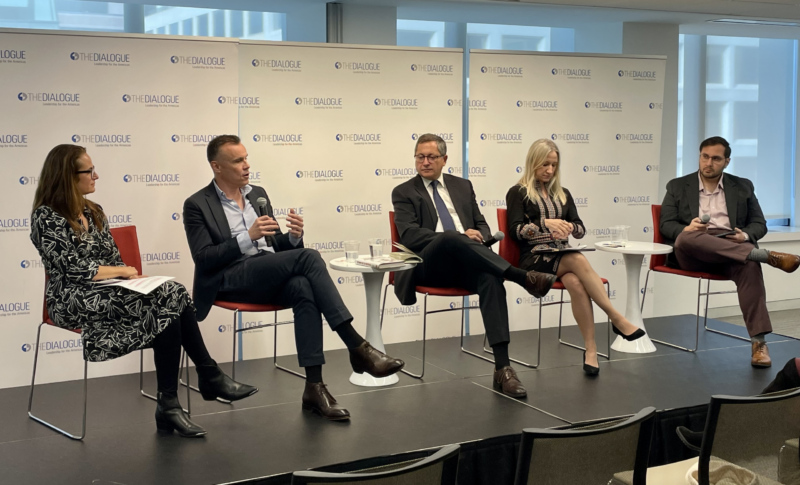Can Spain Solve the Cuba Problem?
By all accounts, Spain wants to bring change to the European Union’s Cuba policy. In so doing, it is tackling a foreign policy challenge that often sheds more heat than light.
While the market inherently lacks the ability to discriminate between democratic and undemocratic regimes, the identification of autocracy as a tangible risk factor is crucial. Investors must recognize that supporting non-democratic regimes ultimately undermines their own interests. By prioritizing investments in democratic nations and championing transparent, accountable governance, financial markets would not only foster sustainable growth within the rule of law but also safeguard investor interests. This was the focal point of discussion during the Inter-American Dialogue's event on February 6, where experts converged to discuss the intricate relationship between investment, democracy, and human rights in the region.
Tamara Taraciuk Broner, director of the Dialogue’s Rule of Law Program, kicked off the conversation by highlighting the indispensable role of various actors, including the business sector, in halting democratic decline in the region. “To engage the private sector, it is critical to have a conversation about how to ensure legal certainty and clear, predictable rules that promote investment and operations,” she noted.
Highlighting the inadvertent financing of autocratic regimes by Wall Street, Marcos Buscaglia, founder of Alberdi Partners and former Wall Street analyst, urged for investor pressure akin to past environmental activism. “[We need] pressure from investors and activist groups, in the same way activists did 20 years ago for the financial markets to include the environment,” he said. Philippe Bolopion, managing director at Tobam, furthered the discourse by framing autocracy as a tangible risk factor for business adding that, "autocracy is not good for business.” On the other hand, democratic countries protect investors through independent judiciaries and transparent regulatory frameworks.
Nicolás Saldías, an analyst at the Economist Intelligence Unit, highlighted the economic benefits of democracy, noting that countries embracing democratic principles stand to gain greater access to global markets. “Countries need to understand that there's a benefit in being more democratic and inclusive,” he said, pointing out that access to markets in the US or Europe should be restricted to undemocratic countries. However, he also noted the challenge of measuring democracy and distinguishing between democratic and hybrid regimes. Besides Wall Street, there are other actors that play an important role in financing autocratic regimes. Romina Bandura, a senior fellow at the Center for Strategic and International Studies, highlighted that “Wall Street is not the only player in town. One big trend is Chinese investment in Latin America, which has the potential to erode democracy further,” due to geopolitical motives rather than financial benefits.
By all accounts, Spain wants to bring change to the European Union’s Cuba policy. In so doing, it is tackling a foreign policy challenge that often sheds more heat than light.
When Haiti was struck by a devastating earthquake, the administration of U.S. President Barack Obama quickly absorbed the depth of the tragedy and necessity of a robust U.S. response. Unless the U.S. adopts a proactive role, Haiti’s fragmented political landscape threatens to deteriorate into a political vacuum that will compound the current crisis.
Politics is swirling everywhere. Such are the ways of democracies, especially when oppositions come alive and defeat or threaten incumbents.
 Inter-American Dialogue
Inter-American Dialogue